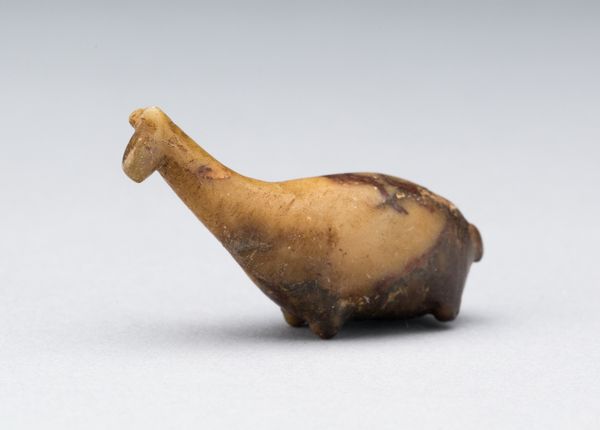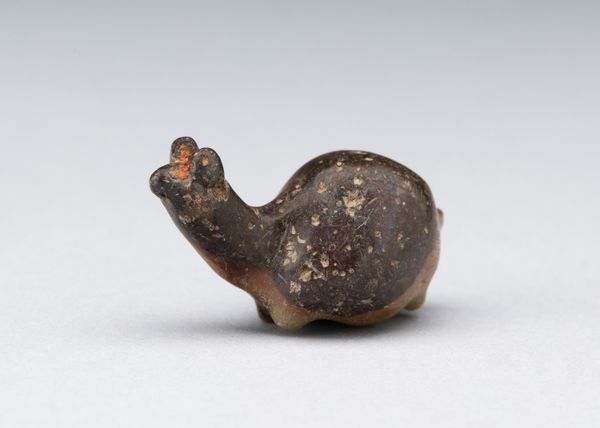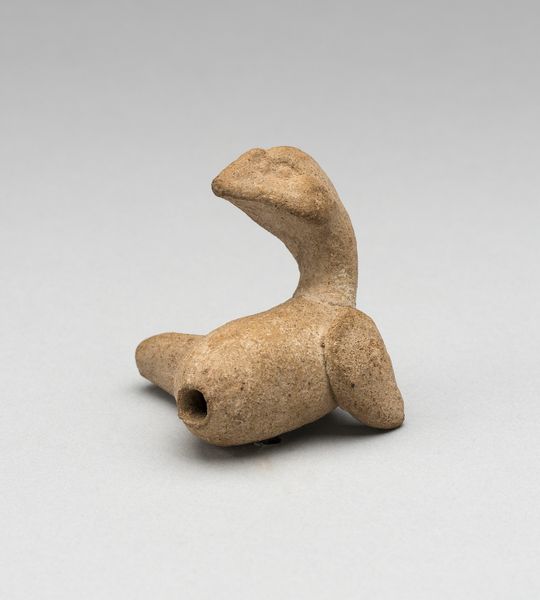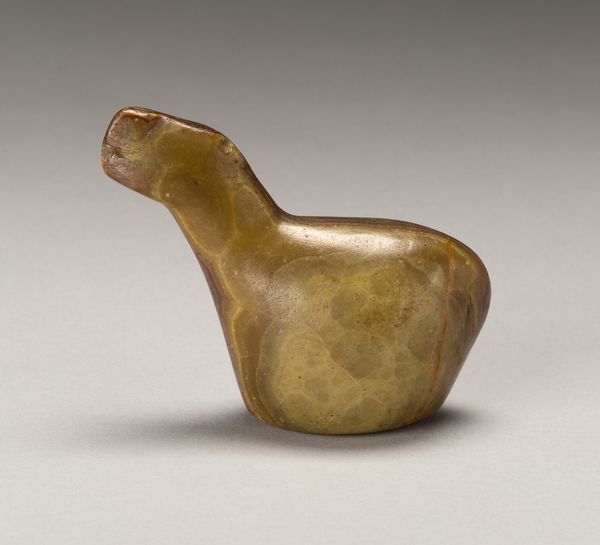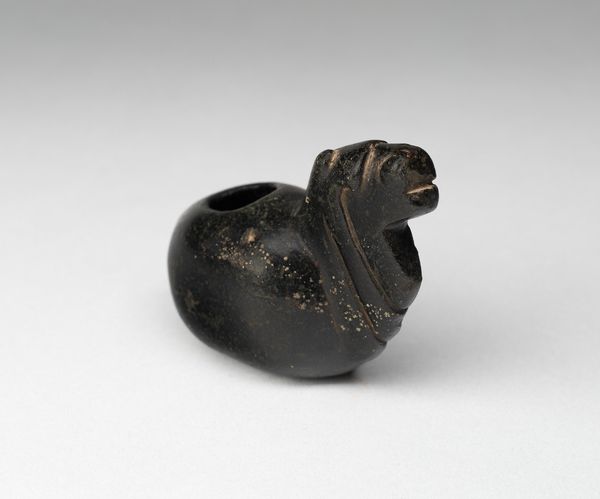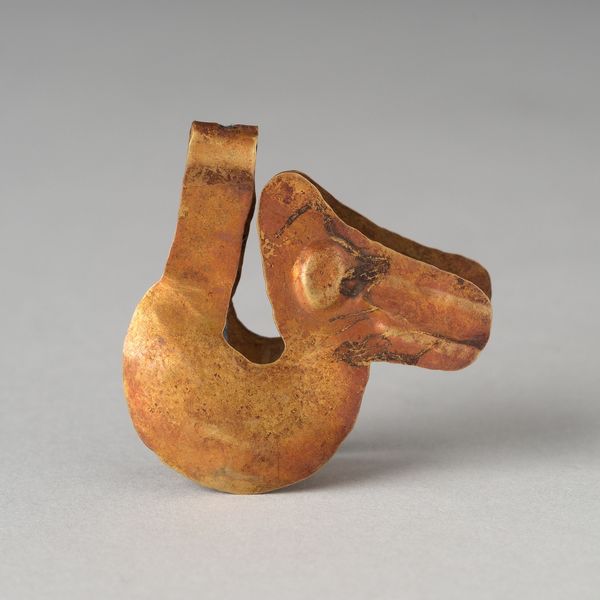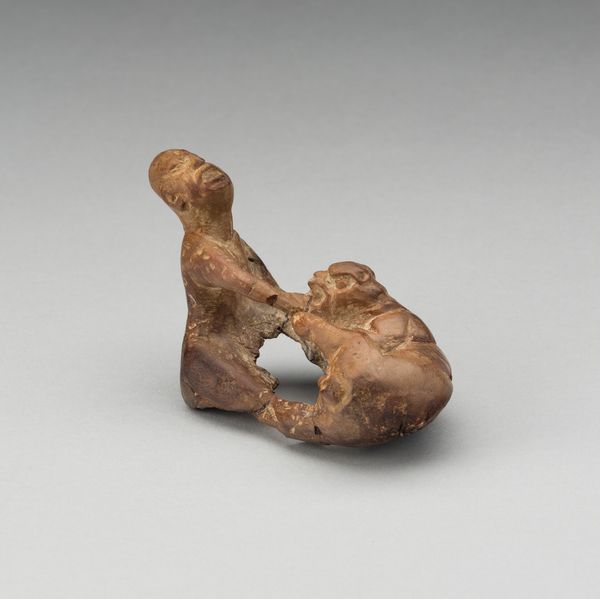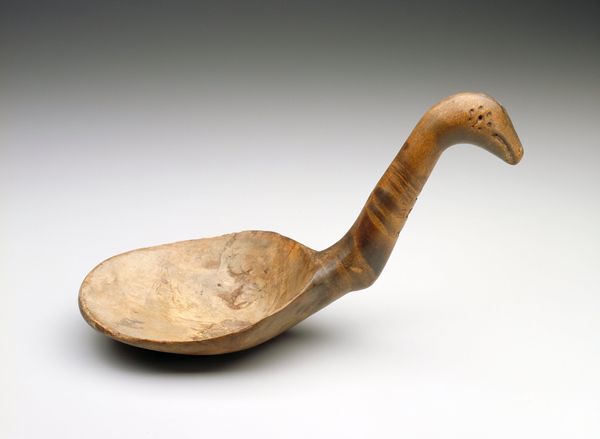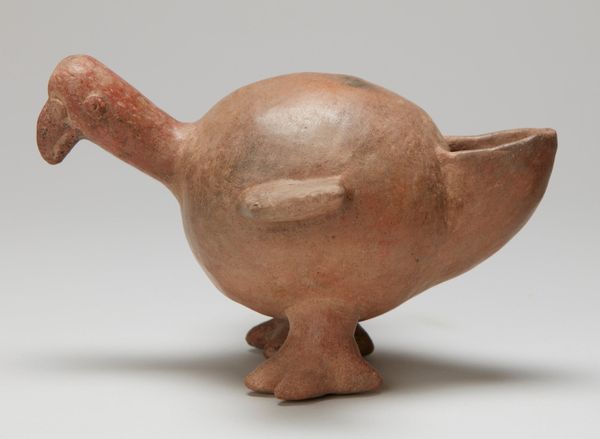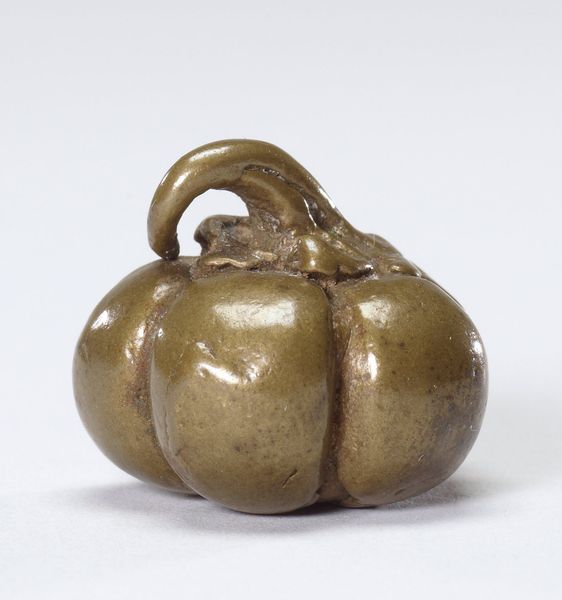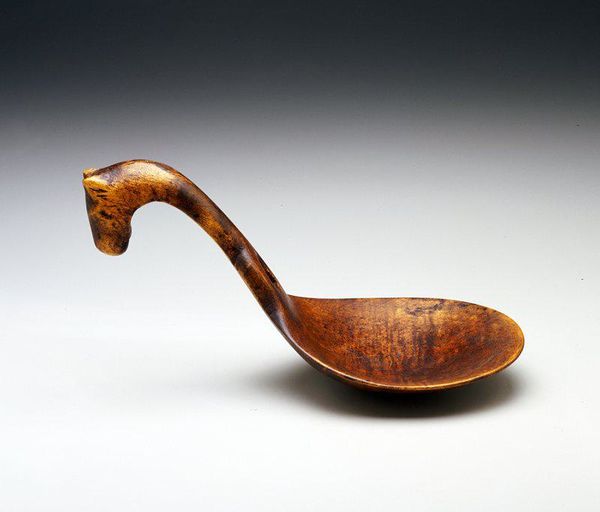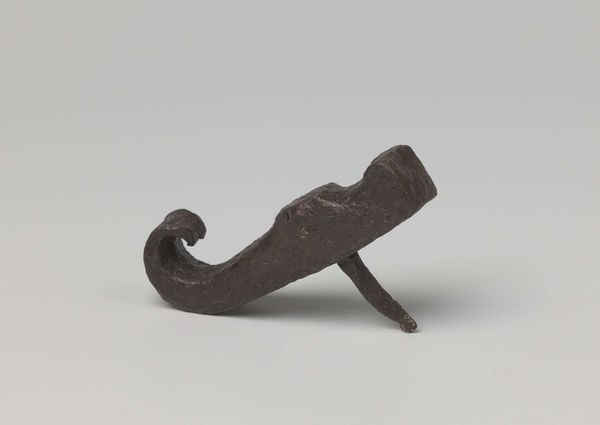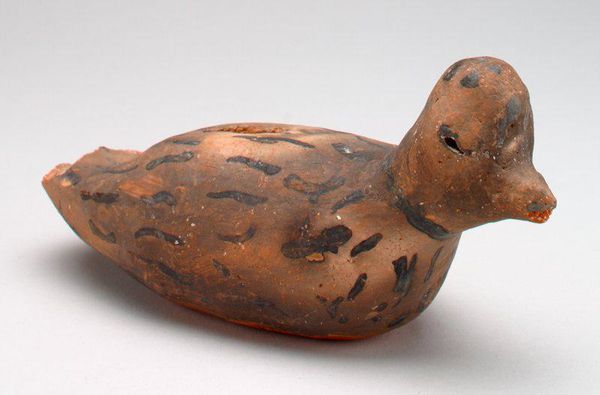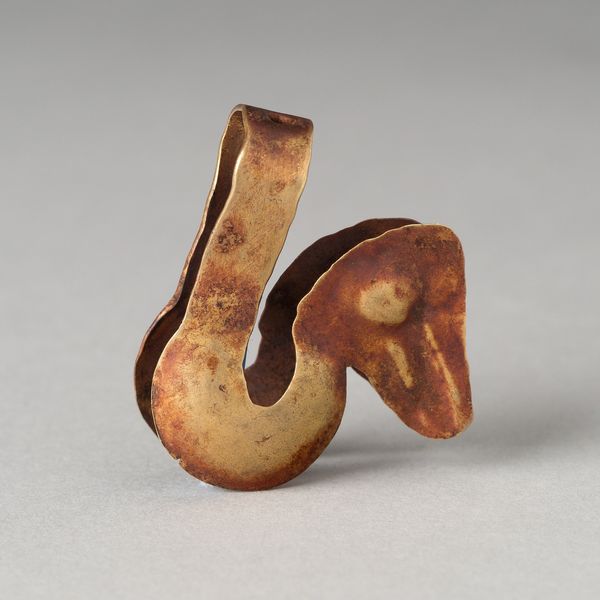
ceramic, sculpture, terracotta
#
ceramic
#
figuration
#
sculpture
#
ceramic
#
terracotta
#
indigenous-americas
Dimensions: 3.2 × 2.4 cm (1 1/4 × 15/16 in.)
Copyright: Public Domain
This small weight representing a llama was made by the Inca people from stone, and would have been used in balance scales. The dark, mottled stone is suggestive of the earth from which it was taken, and its smooth, polished surface invites touch, despite its function as a practical object. Notice how the llama’s form is simplified, yet instantly recognizable, showcasing the maker’s deep understanding of animal anatomy and the sculptural qualities of the stone itself. Given its diminutive size, this work likely required considerable time and patience to produce. The skills used to carve and polish the stone suggest a deep history of creative practices and aesthetics, bridging craft and fine art. Beyond its function, this work represents the importance of the llama to Inca society, as a beast of burden, and a source of wool and meat. By considering the materials, making, and context of this small sculpture, we can understand the value Inca society placed on both practicality and artistic expression, challenging traditional distinctions between craft and fine art.
Comments
No comments
Be the first to comment and join the conversation on the ultimate creative platform.
